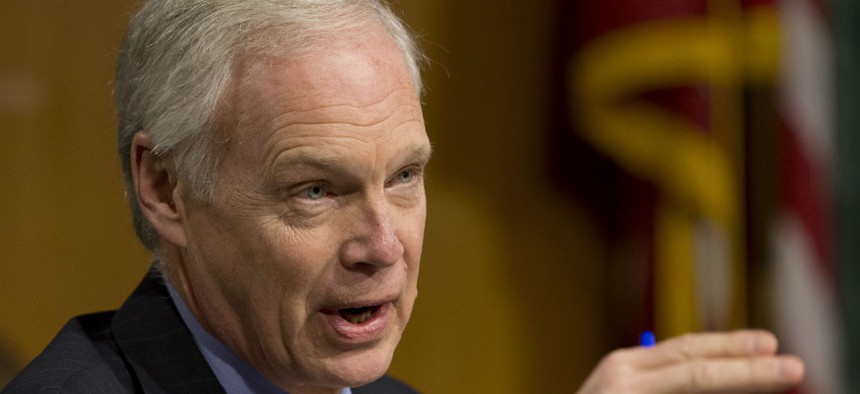Republicans and Democrats Look to Preserve, Expand Obama Hiring Rule
Reform would give ex-felons better chance at federal employment.
As Republicans in Congress have used their authority to unwind about a dozen Obama-era regulations, some in the majority party are now looking to ensure one rule from the former president is permanently added to federal law.
A bicameral, bipartisan group of lawmakers is pushing to codify an Obama regulation to make it easier for federal agencies to hire former criminals, while also looking to expand the reform to federal contractors.
The bill (S. 842) to “ban the box” would bar agencies from issuing any forms that ask about applicants’ criminal backgrounds until the potential hiring officials assess the candidates’ merits, with a few exceptions. The intended effect of that rule, just finalized in December, was to encourage more individuals with “the requisite knowledge, skills, and ability to apply for federal positions by making it more clear that the government provides a fair opportunity to compete for federal employment to applicants from all segments of society,” the Office of Personnel Management wrote when issuing it. That opportunity should include “those with prior criminal histories or who have experienced financial difficulty through no fault of their own,” OPM said.
The Fair Chance Act, sponsored by Sens. Ron Johnson, R-Wis., and Cory Booker, D-N.J., and in the House by Reps. Elijah Cummings, D-Md., and Darrell Issa, R-Calif., would significantly expand the reach of OPM’s efforts by making the elimination of upfront questions about criminal history a condition of all federal contracts. The bill would prevent both federal agencies and contractors from asking for that information until after they made a conditional job offer.
Similar to Obama’s rule, the measure would provide exceptions for positions “related to law enforcement and national security duties, positions requiring access to classified information, and positions for which access to criminal history information is required by law.”
"If someone getting out of prison wants to work and be a productive member of society we should do everything possible to facilitate that,” said Johnson, who chairs the Homeland Security and Governmental Affairs Committee. “The dignity of work is one of the best ways we can keep people from turning back to a life of crime.”
Booker said the legislation would both reduce recidivism and make the country safer.
“The barriers faced by incarcerated people when they try to transition back into society are a big part of why our criminal justice system is so broken,” Booker said. “Our bill helps to address this challenge by giving those who have paid their dues a second chance by putting jobs in the federal government or with a federal contractor within reach.”
Prior to Obama’s rule, many agencies issued Optional Form 306 to applicants at the start of the hiring process, which asks several questions about their records. This practice could have discouraged “motivated, well-qualified individuals” from applying for federal jobs, OPM said in December. It potentially ignored the rehabilitation process, the human resources agency added, as well as the circumstances of any arrests and whether considering criminal history is a “business necessity.”
Preventing candidates from joining federal service because they were previously arrested could “limit their opportunities to obtain the means to secure stable housing, provide support for their families and contribute to their communities,” OPM said.
Similar bills in the last Congress never made it past the committee phase.




